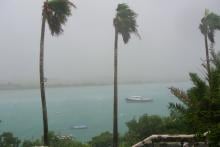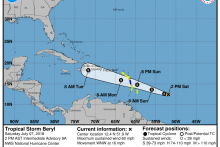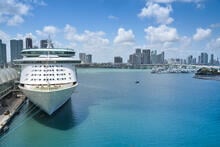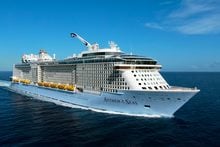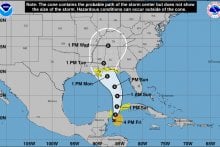The 2024 Atlantic hurricane season, which runs from June 1 to November 30, is expected to be very active, with Colorado State University (CSU) predicting a total of 23 named storms.
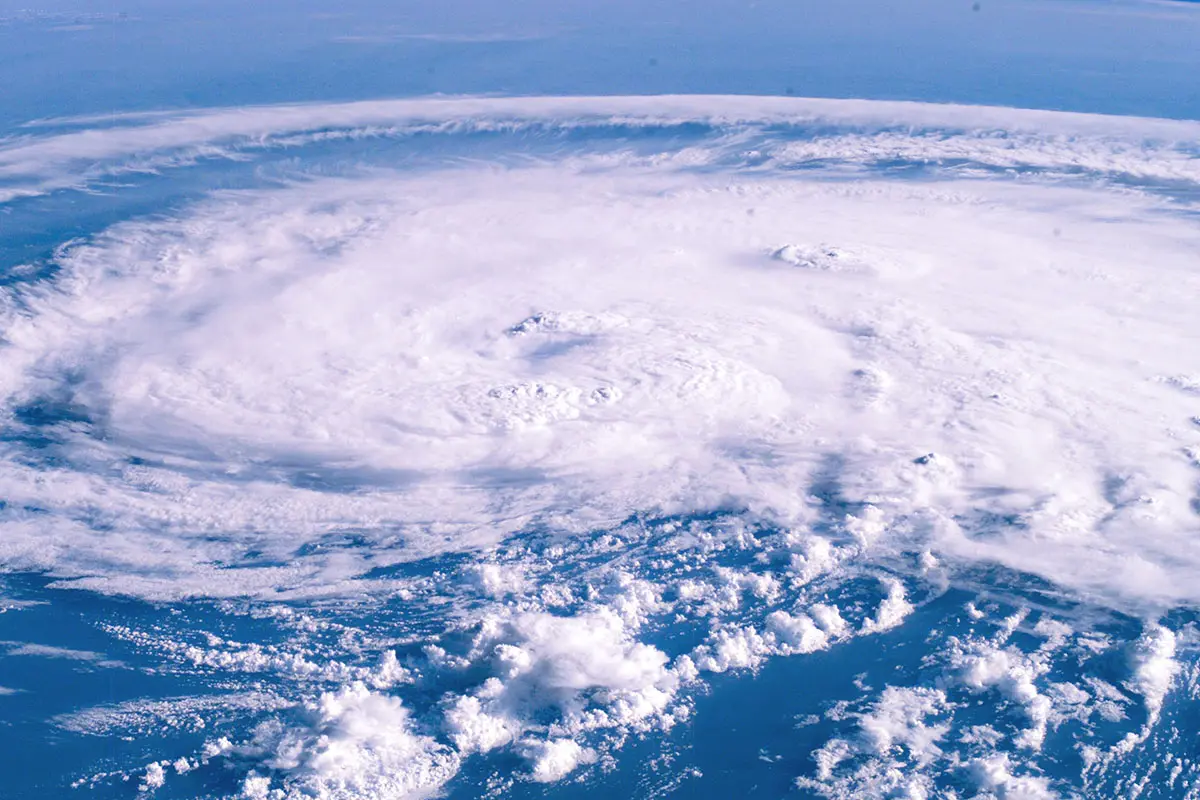
According to CSU's forecast, 11 out of the 23 storms are anticipated to become hurricanes, 5 of which are projected to be major. In total, they're predicting 115 named storm days.
While this doesn't mean you should rush to cancel your planned cruise, it will be wise to monitor weather updates in the days leading up to your sailing, ensuring that you're prepared for any potential disruptions.
Read more: Cruising in hurricane season: What you need to know
The probability of a major hurricane making landfall in the United States and Caribbean is estimated to be well above its average
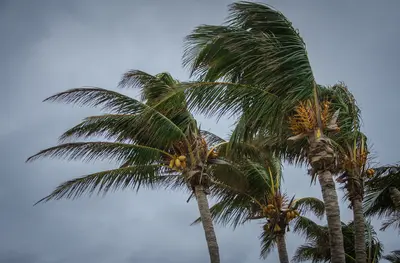
CSU's report states that the probability of at least one major hurricane, defined as a Category 3, 4, or 5 storm, making landfall along the entire United States coastline is 62%. In comparison, the average from 1880 to 2020 was 43%.
Moreover, the probability of at least one major hurricane tracking through the Caribbean is 66%, increasing from the 47% average between 1880 and 2020.
While these are just predictions, CSU's confidence is higher than normal this year given how hurricane-favorite the conditions, including the transition from El Niño to La Niña and the record-warm sea surface temperatures in the eastern and central Atlantic, appear to be.
The entire forecast is available on Colorado State University's website.
What you need to know about taking a cruise during the 2024 hurricane season
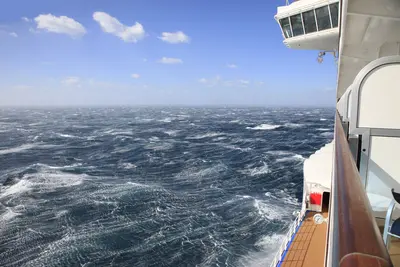
If you haven't already, now is a great time to begin researching different travel insurance policies. Not only do hurricanes have the potential to alter cruise itineraries, but they can lead to unexpected flight delays and cancellations, too.
Purchasing an insurance policy will provide peace of mind in the event that your travel plans are disrupted.
Before settling on one, though, it's important to be aware of what each covers. If you want the ability to cancel your sailing despite the cruise departing as scheduled, you'll want to ensure that your policy has a "Cancel For Any Reason" clause. Otherwise, you'll forfeit the entire cost of the vacation.
Read more: Travel insurance for a cruise: Why you need it for a Royal Caribbean cruise
Don't book a cruise for a single port of call

If a storm does develop before or during your cruise that puts your current itinerary at risk, Royal Caribbean will alter the schedule to ensure that passengers and crew remain safe.
This means that your 7-night Eastern Caribbean cruise could become a Western one, visiting ports like Cozumel and Falmouth instead of San Juan and St. Maarten. Last year, a cruise to Bermuda onboard Vision of the Seas was changed to sail to the Bahamas, including Nassau and CocoCay, because of Hurricane Lee.
Additionally, ships are designed to be able to outrun rough seas. While the average speed of hurricanes is around 10 knots, many ships can reach speeds of 22 knots or higher.

As long as the cruise's embarkation port is open, it is pretty much guaranteed that the ship will set sail.
Note that per the cruise contract agreed to upon booking, Royal isn't required to provide compensation for any itinerary changes.
Bring plenty of seasickness medication
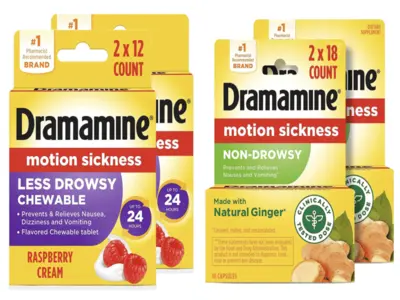
Whether you are sailing during the peak of hurricane season or not, it's smart to come prepared with some seasickness remedies in case your ship does encounter some rough swells.
All ships are headed by a skilled captain, who will do everything possible to avoid unfavorable sailing conditions. Additionally, cruise ships are equipped with stabilizer fins that help reduce (but not completely eliminate) the amount of motion felt by guests.
Rather than spend a fraction of your cruise feeling ill, come prepared with Dramamine, acupressure bands, or whichever remedy works best for you.
Don't risk flying in on the same day as your departure
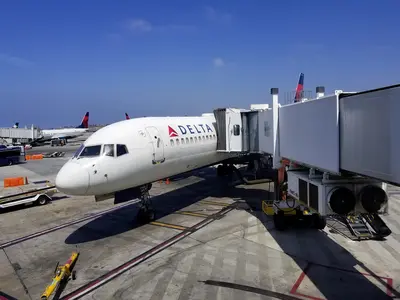
Though flying in at least one day before your ship's departure is always recommended due to the unpredictability of air travel, it becomes even more important during hurricane season.
Even if you aren't sailing to the Caribbean or Bahamas, a storm that impacts Central Florida can wreak havoc on flights, disrupting those flying all over the United States.
Cruise ships won't wait for those with delayed or canceled flights, meaning that if 1:00pm rolls around and you're still waiting on your plane to depart, it's likely you won't end up making the all-abord time.
Read more: The costly cruising mistake newbies make planning their first cruise
Though you can save money on a cruise during hurricane season, sailing during this time of year means having a certain level of flexibility with your plans
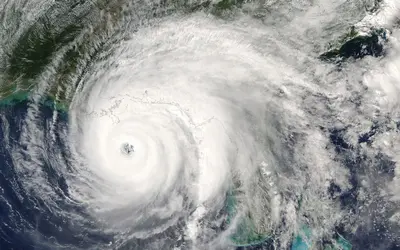
During the latter half of the hurricane season, potential cruisers can typically find some low fares compared to sailings that depart in June and mid-July.
While part of the reason is because the peak summer travel season has ended, it's also to account for the uncertainty that accompanies cruising during hurricane season.
For example, a 7-night cruise onboard Wonder of the Seas in early September starts at $909 per person for an interior cabin. The same cruise, which visits the Eastern Caribbean and Perfect Day at CocoCay, in July costs $1,559. By choosing to cruise a few weeks later, you can potentially save over $600 per cruiser!
Thankfully, cruising during hurricane season is just as safe as any other time of the year. Storms are a reality of life that can impact travel at any point, and cruise lines take heightened precautions during hurricane season.


